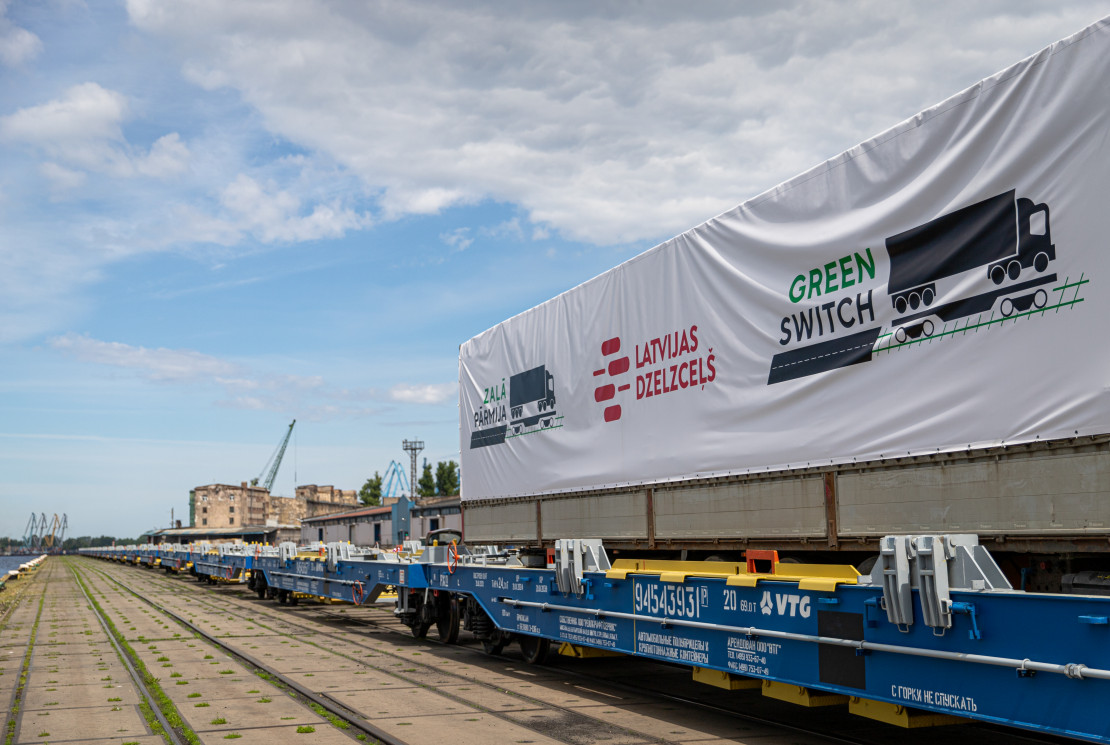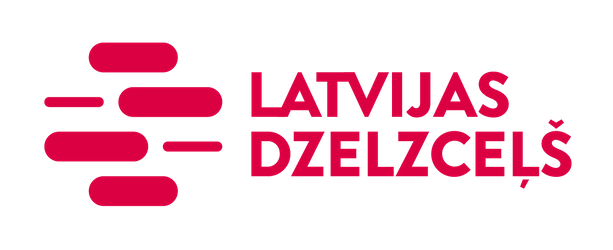
Each year, trucking companies transport almost 60 million tons of freight by Latvian roads, and during the last five years, the volume of freight transported over Latvian roads has increased by a quarter or more than 25%. Although trucking is a traditional mode of freight transport in Latvia and the Baltic countries, in most European countries there has been a growing tendency over the past decade to shift transportation from road to rail, ensuring more environmentally-friendly freight transport and significantly facilitating the work of cargo owners.
In order to relieve Latvian roads from semi-trailer trucks and the damage they do to both the environment and the quality of roads, as well as to give the opportunity to all cargo owners and freight forwarders to provide more efficient and advantageous freight transport services, SJSC "Latvijas dzelzceļš" has developed and is launching a new service called Green Switch.
SJSC "Latvijas dzelzceļš" Chairman of the Board Māris Kleinbergs: “In recent years, there has been really fierce competition between transit corridors and freight carriers, and factors such as speed, predictability, resource efficiency and environmental compliance are playing an increasingly important role in cargo owners’ decisions on the optimal mode of freight transport. Therefore I am pleased that the new LDz offer – regular transportation of semi-trailer trucks by rail – will indeed serve as a kind of green transition, and freight transportation in Latvia will become more environmentally-friendly, road traffic volumes will be reduced significantly, and cargo owners will be able to capitalize on unprecedented opportunities.”
The Green Switch service of LDz offers all freight carriers to move freights previously transported by road in a semi-trailer to the railways, albeit without a truck and a driver, where they will be delivered to the designated port terminal in Liepāja or Ventspils and loaded onto a Stena Line ferry to travel further to Germany or the Scandinavian countries.
SJSC "Latvijas dzelzceļš" Chairman of the Board Māris Kleinbergs goes on to say: “LDz project Green Switch will benefit both cargo owners and the entire national economy and the general public – by shifting freight to rail, roads will be relieved and road maintenance and repair costs will decrease, traffic safety on the main highways will improve, while the total amount of CO2 emissions will decrease. Rail is one of the greenest modes of transport in both passenger and freight transport industries, and I am pleased that LDz's offer will benefit everyone.”
Stena Line Commercial Manager Oskars Osis: “I am convinced that contrailer transportation is the future of the transport industry. Today, Europe is facing the challenge of getting rid of the exhaust fumes from trucks on public roads. Therefore we can also talk about the introduction of contrailer transport in intermodal traffic in the Baltics. It is important to note that the rail-port linkage is working impeccably, and in the future it should become one of the most accurate ways of delivering goods in terms of time and ecology.”
“It is important to realize that the future development of the Green Switch project, in cooperation with land and sea junctions, will lead to a competitive mode of transport, connected to the rail network in Europe. In addition to the commercial, road condition and environmental aspects, the traffic safety component of this project must also be taken into account. Various methodologies are used to calculate exhaust emissions, but most experts agree that shifting freight to rail and sea reduces emissions on average by up to 70% across the freight route and improves traffic safety in the given country as a whole. It is also worth mentioning the aspect of Mobility Package in the field of intermodal transport – this mode of transport will be able to help carriers to better comply with the regulations governing Mobility Package. As a result, this type of freight transport will solve another problem that Europe has already faced – the lack of professional drivers for international freight transport,” says Oskars Osis.
"I am confident that the current and future regulations, as well as the restrictions introduced because of the pandemic, have accelerated this project, because this type of freight transportation will reduce the human factor in the transport industry," Oskars Osis concludes.
By shifting freights from road to rail, cargo owners will enjoy a number of benefits, such as the ability to efficiently transport heavier freights without having to pay a road toll or vignette and reduced vehicle depreciation, fuel consumption and labour costs, thus reducing the total cost per mass unit. Green Switch also means that cargo owners do not to have to worry about loading their cargo onto a ferry – LDz will ensure the transfer of each semi-trailer from rail to ferry and back to rail at the ferry’s destination.
Combined transport, in which semi-trailers are transported by rail or sea, and trucks are only involved in the initial or final delivery, is becoming increasingly popular in Western Europe, as evidenced by freight statistics. Data compiled by the International Union of Railways (UIC) and the International Union for Road-Rail Combined Transport (UIRR) show that in the period from 2009 to 2018, the total amount of freight transport In Europe increased by 10.5%, while the share of rail transport in the total freight transport volume increased by more than 56%.
SJSC "Latvijas dzelzceļš" project Green Switch is implemented by the Group’s companies "LDZ Loģistika" Ltd. and "LDZ CARGO" Ltd. in cooperation with the international transport and tourism company Stena Line. The pilot project was carried out in July 2020, when a semi-trailer was transported by rail from Moscow to Liepāja Port, from which the cargo was shipped by a Stena Line ferry to Travemünde, Germany, and continued its journey by rail again from there.

